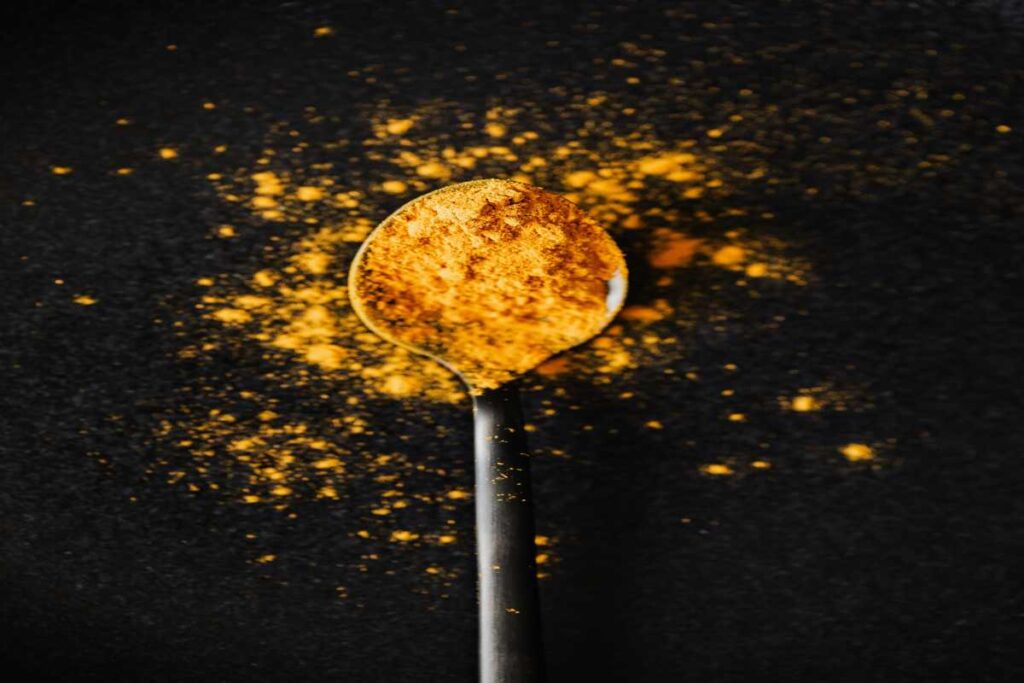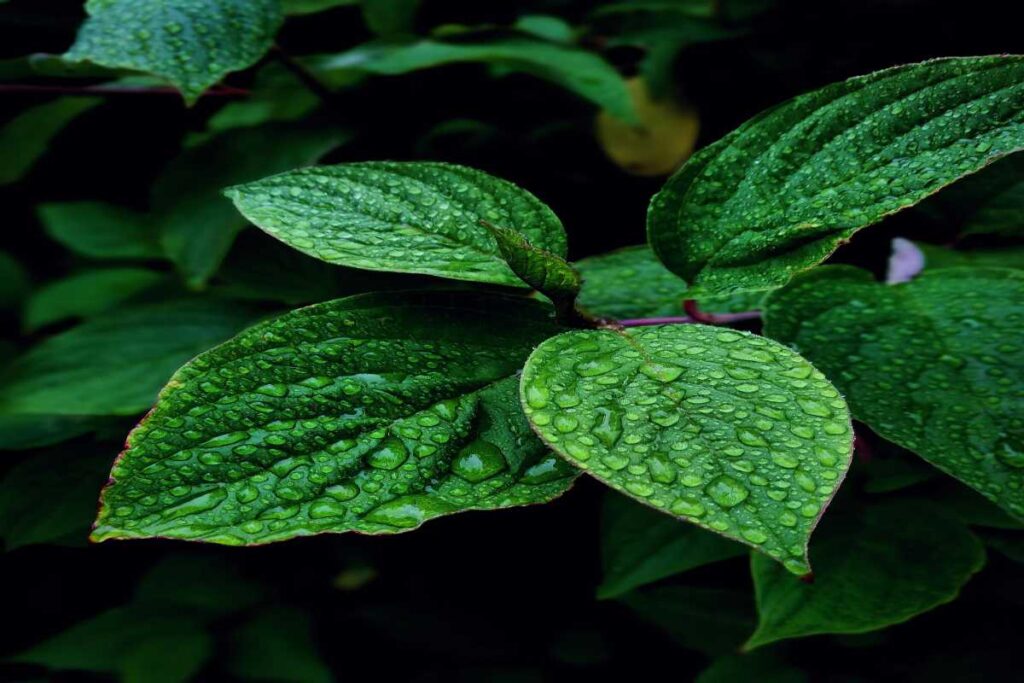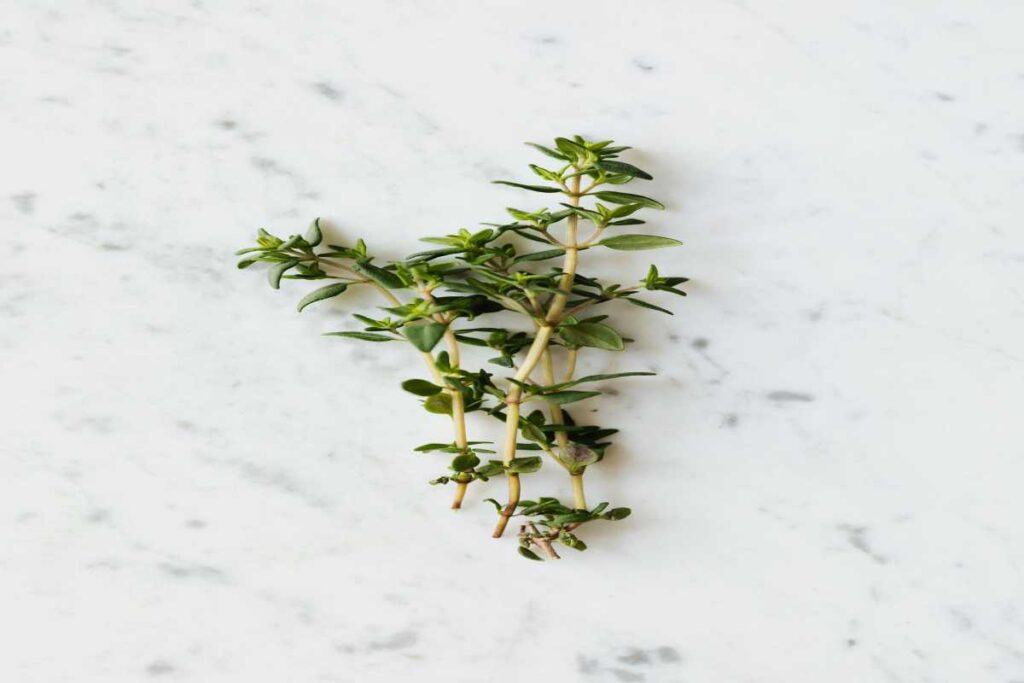Adding herbs and spices to your skincare routine can be a game-changer. They’re packed with vitamins, antioxidants, and natural healing properties that not only nourish your skin but also help address issues like acne, dryness, and aging. Using these natural ingredients can boost your skin’s health without the harsh side effects sometimes seen with chemical products. Here’s a detailed look at 21 powerful herbs and spices you can add to your skincare routine to promote a glowing, healthy complexion.
1. Turmeric

Turmeric has been a staple in skincare for centuries due to its anti-inflammatory and antibacterial qualities. The active compound, curcumin, fights free radicals, reduces inflammation, and brightens the skin, making it great for acne-prone and dull skin.
How to Use:
Mix a small amount of turmeric powder with yogurt or honey to create a face mask. Apply it for 10-15 minutes, then rinse off to reveal a brighter complexion. Be cautious as turmeric can stain, so rinse thoroughly.
2. Aloe Vera
Aloe Vera is known for its soothing and hydrating properties. It helps to lock moisture into the skin, calms inflammation, and speeds up healing, which makes it ideal for sunburns and sensitive skin.
How to Use:
Use fresh aloe gel from the leaf and apply it directly to your skin as a hydrating mask. It’s especially effective when used as an overnight mask for maximum hydration and soothing.
3. Chamomile
Chamomile is excellent for calming irritated skin and reducing redness due to its anti-inflammatory and antioxidant properties. It’s a go-to for sensitive skin and helps reduce eczema symptoms as well.
How to Use:
Brew chamomile tea and let it cool. Use it as a soothing toner or facial spray. Chamomile tea bags can also be applied directly under the eyes to reduce puffiness.
4. Lavender
Lavender is beloved for its calming scent, but it’s also a powerful antibacterial that helps reduce acne and soothes inflamed skin. It’s beneficial for both acne-prone and sensitive skin.
How to Use:
Mix a few drops of lavender essential oil into a carrier oil (like jojoba or almond oil) and apply it to your skin. Lavender oil can also be added to face masks to balance and calm the skin.
5. Green Tea
Green tea is packed with antioxidants, particularly EGCG, which helps combat signs of aging, reduces inflammation, and promotes a clearer complexion. It also helps regulate sebum production, making it excellent for oily skin.
How to Use:
Use cooled green tea as a toner or mist. You can also use green tea leaves in face masks to help reduce redness and improve elasticity.
6. Neem
Neem is known for its antibacterial properties and is especially helpful for acne-prone skin. It reduces inflammation, controls excess oil, and helps fade dark spots, providing a clearer complexion over time.
How to Use:
Mix neem powder with water to make a paste and apply it as a mask for 10-15 minutes. Rinse with warm water to reveal clearer skin. Neem oil can also be diluted and applied to stubborn acne spots.
7. Rosemary
Rosemary has antioxidants that fight free radicals and stimulate blood circulation, which can help improve the appearance of dull skin and give it a natural glow.
How to Use:
Add rosemary essential oil to your daily moisturizer or dilute it in a carrier oil to massage into the skin. You can also brew rosemary tea to use as a toner to refresh your skin.
8. Calendula
Calendula, also known as marigold, has powerful healing and anti-inflammatory properties, making it ideal for treating sensitive, dry, or irritated skin.
How to Use:
Brew calendula tea and use it as a toner, or apply calendula-infused oil to your skin as a gentle moisturizer. It can be especially soothing for eczema or sensitive skin types.
9. Saffron
Saffron is known for its brightening properties, helping to reduce pigmentation and lighten dark spots. This ancient beauty spice also improves skin texture and glow.
How to Use:
Add a few saffron strands to milk or rose water and let it sit for 10 minutes to infuse. Use a cotton ball to apply the mixture as a toner or leave-on serum.
10. Mint

Mint is refreshing and has antibacterial properties that help control oil and prevent acne. The menthol in mint provides a cooling effect, which can reduce inflammation and soothe skin.
How to Use:
Crush fresh mint leaves and mix with a little water to create a paste. Apply as a spot treatment on acne or use in a face mask to cool down inflamed skin.
11. Basil
Basil has natural antibacterial and anti-inflammatory benefits that make it helpful for acne and irritated skin. It’s known to purify and cleanse the skin, reducing breakouts.
How to Use:
Make a basil paste by grinding fresh basil leaves with water. Apply it to the face for 10-15 minutes to help clarify the skin.
12. Ginger
Ginger is packed with antioxidants that fight aging, improve circulation, and reduce hyperpigmentation, making it a wonderful ingredient for dull or tired-looking skin.
How to Use:
Add a small amount of ginger powder to honey or yogurt and use it as a brightening face mask. Ginger tea can also be used as a toner to help even out skin tone.
13. Holy Basil (Tulsi)
Tulsi is highly regarded in Ayurvedic medicine for its healing properties. It has antibacterial and detoxifying qualities that are ideal for acne-prone skin.
How to Use:
Use Tulsi powder in a face mask with honey or aloe vera gel, or brew Tulsi tea and use it as a natural toner.
14. Cinnamon
Cinnamon stimulates blood flow, reduces signs of aging, and has antimicrobial properties. It can plump up skin and is great for circulation but should be used sparingly as it can be strong.
How to Use:
Mix a tiny amount of cinnamon with honey and apply it as a mask. Leave it on for 5-10 minutes to avoid irritation, as cinnamon can be potent.
15. Peppermint
Peppermint has a cooling effect and helps control oil production, making it ideal for oily or acne-prone skin.
How to Use:
Use peppermint tea as a toner or mist, or dilute peppermint essential oil in a carrier oil for a refreshing and invigorating skin treatment.
16. Fenugreek
Fenugreek is rich in antioxidants and has anti-inflammatory properties, which can help prevent signs of aging and rejuvenate the skin.
How to Use:
Soak fenugreek seeds overnight, grind them into a paste, and use as a face mask. This helps firm the skin and reduce fine lines.
17. Licorice Root
Licorice root is renowned for its skin-brightening properties. It helps to reduce pigmentation and fade dark spots.
How to Use:
Licorice root extract can be used in serums or masks to even out skin tone and add brightness. Add licorice powder to your favorite face mask for added benefits.
18. Sage
Sage helps control oil and has antibacterial properties, making it excellent for oily and acne-prone skin.
How to Use:
Brew sage tea and use it as a toner, or add sage oil diluted in a carrier oil to your skincare for clearer, fresher skin.
19. Bay Leaf
Bay leaves contain vitamins and minerals that improve skin texture and reduce inflammation. They help cleanse the skin and keep it radiant.
How to Use:
Boil bay leaves in water, cool, and use the liquid as a toner. You can also add bay leaf powder to a DIY face mask for extra nourishment.
20. Thyme

Thyme has antibacterial properties that help fight acne and clear congested skin.
How to Use:
Thyme tea can be used as a toner to keep acne at bay, or dried thyme can be added to masks for a refreshing effect.
21. Oregano
Oregano is rich in antioxidants and has antiseptic properties, making it great for acne and inflammation.
How to Use:
Dilute oregano essential oil in a carrier oil and use it as a spot treatment on acne-prone areas for targeted care.
Conclusion
These herbs and spices offer powerful benefits when added to your skincare routine, providing natural remedies for everything from acne to aging. Patch-test any new ingredient before using it on your face to avoid irritation. Embrace these potent, natural skincare ingredients to enjoy healthier, more radiant skin!
